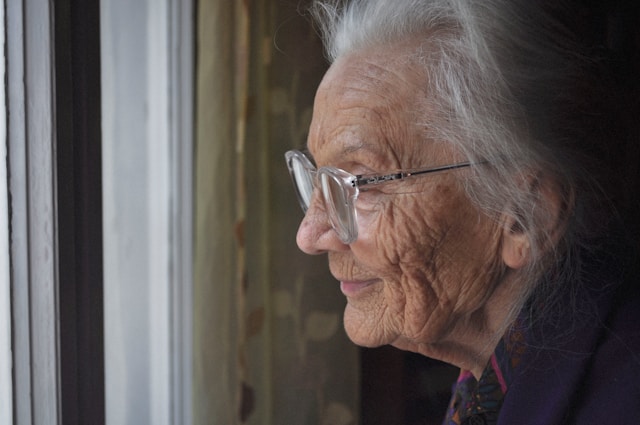
In Australia, breast cancer remains the most commonly diagnosed cancer among women. While national screening programs like BreastScreen Australia provide free mammograms to women aged 50 to 74, private screenings and follow-up procedures aren’t always straightforward — especially when it comes to health insurance coverage.
Many Australians assume that if they hold private hospital or extras cover, screenings and specialist visits should be automatically reimbursed. But like most things in the private health space, the answer is: it depends.
This article breaks it down — what’s publicly funded, what private health insurance actually covers, and what you should look out for in your policy if breast cancer screening is on your radar, either for prevention or ongoing management.
Breast Cancer Screening in Australia: What’s Free and What’s Not
Let’s start with the basics. If you’re a woman aged between 50 and 74, you’re eligible for a free screening mammogram every two years through BreastScreen Australia. This is a government-funded service, available across all states and territories, and you don’t need a referral.
Women in the 40–49 and 75+ age brackets can also access BreastScreen services, but they won’t receive automatic invitations. They can opt in, but participation rates tend to be lower in these groups. However, here’s where the distinction comes in — if you:
- want a mammogram outside the free age window,
- require more frequent screenings due to family history,
- or need a diagnostic mammogram (not a routine one),
you might find yourself out of pocket, especially if you go down the private path.
Where Private Health Insurance Steps In (And Where It Doesn’t)?
Private health insurance coverage for breast cancer screening falls into two categories: hospital cover and extras cover.
Here’s the tricky part — routine screening is generally not covered by private hospital insurance. That’s because most policies classify mammograms as outpatient diagnostic tests, which Medicare covers partially, but not fully.
However, if you’re referred for further testing due to suspicious results — say, a breast ultrasound, biopsy, or even breast MRI — and this leads to an in-hospital admission, then private hospital insurance may kick in. But it all depends on your level of cover, the hospital agreement your fund has, and whether the procedure is inpatient or outpatient. Let’s break this down in the following table:
Service | Medicare Covered | Private Health Covered | Out-of-Pocket? |
Routine mammogram (BreastScreen) | Yes | No | No (Fully funded) |
GP/Oncologist referral mammogram | Partial | Mostly no | Likely |
Breast ultrasound (diagnostic) | Partial | Mostly no | Often |
Breast MRI | No (unless high risk) | Possibly (in hospital) | Significant gap likely |
Biopsy (day procedure) | Partial | If inpatient | Varies |
The Gap Everyone Misses: Outpatient Diagnostic Scans
Here’s where most people get caught off guard. If your doctor refers you to get an ultrasound or mammogram for investigation — and you opt to do it at a private clinic — it’s still considered an outpatient service, even if you have top-tier hospital cover.
What this means is:
- Medicare might reimburse a fixed portion (e.g. $60–$80).
- Private health funds usually won’t pay anything toward it.
- The gap fee, especially at private imaging clinics, can be upwards of $200–$400 per scan.
Unless you’re in a hospital, or the imaging is part of a larger procedure that leads to admission, your private hospital cover won’t offer much support here.
What About Extras Cover? Does That Help?
This is where things get a bit confusing. Some high-tier extras policies include limited benefits for health checks — like blood tests, bone density scans, or even skin checks. But mammograms? Rarely covered.
A few funds offer a small benefit under categories like “Preventive Health” or “Health Management.” These benefits might reimburse a portion (e.g. $50–$150) per year if you get a doctor’s note or referral. But this isn’t common, and it’s often capped.
So, unless you’ve specifically selected a policy with wellness or screening benefits, don’t expect extras cover to help much with routine or private diagnostic scans.
Is It Worth Going Private for a Mammogram or Screening?
If you’re outside the BreastScreen age bracket, or have a high-risk family history, you might prefer the speed and convenience of a private clinic. Some reasons people choose private breast imaging include:
- Shorter wait times
- Access to 3D mammography or breast MRI
- More frequent screening due to family history
- Choice of radiologist or breast specialist
In these cases, yes — going private may offer peace of mind. But be prepared to pay out-of-pocket, unless your health condition leads to a procedure that’s classified as an inpatient hospital admission.
What You Can Do: Tips for Navigating Your Cover
If breast health is important to you — whether for proactive care, family history reasons, or previous diagnosis — here are some practical steps to reduce surprises and make the most of your cover:
1. Review Your Current Policy
Call your health fund or use an online comparison tool. Ask specifically: Are breast ultrasounds, MRIs, or biopsies covered if I’m not admitted to hospital?
2. Check Waiting Periods
For new hospital cover, most policies apply a 2-month waiting period for general treatment, and 12 months for pre-existing conditions like cancer. Don’t leave it until you need it.
3. Look for Hospital Agreements
Some private hospitals have no-gap arrangements with specific funds for breast procedures. This could reduce your out-of-pocket costs dramatically.
4. Get a Referral from Your GP
Even if you’re going private, having a referral can increase your Medicare rebate for diagnostic imaging.
5. Claim for Health Management Programs
Some extras cover policies that will reimburse services like consultations with a breast care nurse or oncology physiotherapy under health management benefits.
A Final Thought
Screening is just one part of the story. If something suspicious is found, your costs can escalate quickly — especially if you’re navigating biopsies, surgery, or reconstruction. In that case, the right hospital cover can save thousands. But too many Australians hold junk or low-tier hospital policies that exclude cancer-related procedures, or restrict them to public hospital access — defeating the purpose of private cover.
If you’re not sure what your policy includes, now’s the time to ask questions. Don’t wait until you’re booked for a scan or sitting across from a specialist. Contact Deal Expert for a detailed consultation on choosing the right health cover. Our experts will help you find a suitable private health insurance policy according to your medical history and health conditions.


